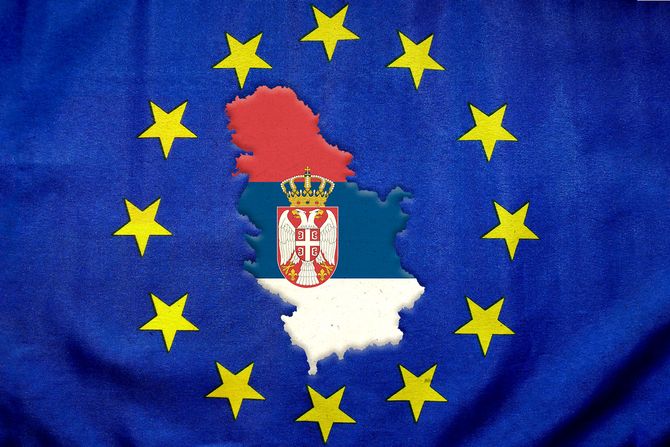
What is Serbia doing to accelerate reforms and European integration?
In addition to membership negotiations, the EU's policy towards Serbia should also include a European investment package that could accelerate the region's path towards the European family. The French president has partially changed his rigid stance on the perspective of the Western Balkans. These are some of the topics that are driving the debate in Serbia about what we are doing to accelerate reforms and European integration.
How can we move forward with Eurointegration when, for every euro we receive from the EU, a member gets six. Without investment, there is no progress in European integration, French President Macron is aware, but investment is not an alternative to membership, RTS writes.
Slobodan Zecevic from the Institute for European Studies says that without EU membership, you don't receive the kind of trust from Western investors that EU members do.
"So, there is a lot more trust in them and that is why, as much as we have high growth rates in comparison to our neighbors, we cannot catch up to Romania, Bulgaria, Hungary, because they are in a more favorable position than we are," says Zecevic.
Analyzing the seven areas and reforms for the most important chapters in membership talk, it is striking that we are still waiting for the political decision to join the World Trade Organization. With zero tolerance for import of genetically modified products, Chapter 30 is painful.

"The approach we should take that responds to the concerns of the citizens is to lift the absolute ban, but introduce a system of controls that would be very effective and that would essentially respond to the citizens' concerns. However, what we have is a great politicization of this issue," says Igor Novakovic from the Center for International and Security Affairs.
What is the problem with Chapters 5 and 32 that deal with public procurement and financial control?
"If we had an obligation to align regulations with new directives in the fields of public procurement and public-private partnerships by 2017, and then do that only for public procurement and not for public-private partnerships by 2019 - then it's very difficult to talk about some real political will to carry out the reforms as envisaged in these areas," said Nemanja Nenadic from Transparency Serbia.

By the elections scheduled for April 26 we will have had four years of stability important for reforms, but the key to EU accession, experts say, is in the hands of the candidate countries.
"The proposed new methodology for accession to the Union should make it more relevant, effective and credible, but in the end, it depends on nothing as much as on the political will," says Max Brendle, director of the Friedrich Ebert Foundation.
Unlike in Albania, which is lagging behind Serbia, there is a lack of EU enthusiasm here. That's the impression of the experts who analyzed the achievements of the current government when it comes to EU integration.
(Telegraf.rs)
Video: Pozar u Zemunu, goreo stan u Alaskoj ulici
Telegraf.rs zadržava sva prava nad sadržajem. Za preuzimanje sadržaja pogledajte uputstva na stranici Uslovi korišćenja.

